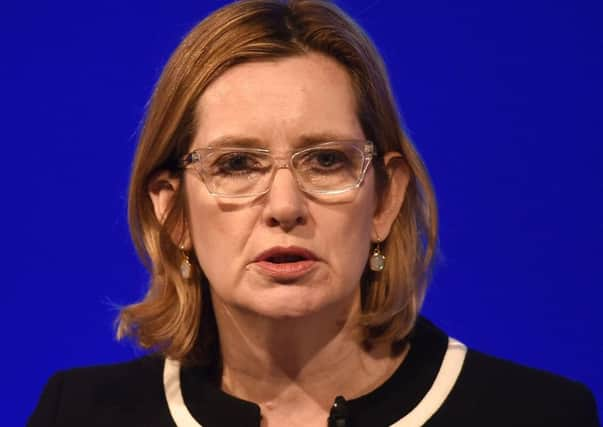Government immigration policy branded a '˜shambles' as new inquiry announced


Critics were quick to hit out at the proposed inquiry after it became clear the findings would not be published until a few months before the Brexit cut-off date – and after the Government brings forward its own immigration white paper in the autumn.
There was also confusion about the Government’s plans for free movement, after Immigration Minister Brandon Lewis appeared to contradict reports of a transitional period by stating the practice will come to a “clear” end when Britain leaves the EU in March 2019.
Advertisement
Hide AdAdvertisement
Hide AdThis is in contrast to comments made by the Home Secretary Amber Rudd, who has spoken of a “grace period” for European migration before post-Brexit rules kick in.
According to the most recent figures, EU nationals currently account for around 7 percent of the UK workforce. This includes 5.5 percent of nurses and 14 percent of workers in the retail and leisure industries.
Announcing the new immigration inquiry on Thursday, the Home Office claimed it would provide the government with a detailed analysis of the role of EU nationals in the UK economy and society.
Ms Rudd described it as a “major step in ensuring we create a system that works in the best interests of the country”.
Advertisement
Hide AdAdvertisement
Hide AdHowever, Labour and the Lib Dems questioned why ministers had taken so long to commission such a review, and expressed doubts about how useful its findings will be, given that they are due to be released in September 2018 – just seven months before the March 2019 deadline.
The Government is also expected to bring forward a white paper setting out plans for post-Brexit immigration later this year.
Liberal Democrat home affairs spokesman Sir Ed Davey argued the study should have been conducted before the referendum, stating: “The NHS, businesses and universities that depend on European citizens need answers now, not in another 14 months’ time.”
While Labour MP and Home Affairs select committee chairman Yvette Cooper said she was “flabbergasted” it had taken ministers “13 months to ask these basic questions”, blaming“ incompetence or internal arguments” for the delay,
Advertisement
Hide AdAdvertisement
Hide AdThe situation was compounded when reporters questioned Foreign Secretary Boris Johnson about the inquiry during his official visit to Australia. Mr Johnson revealed he was unaware of the plans, but said he believed in “the value of immigration and the value of having an open approach to it”.
Earlier in the day, the immigration Minister Brandon Lewis told the BBC that he expected to see an end to the free movement of EU nationals into the UK on the exact day of Britain’s departure from the trading bloc.
He told the Today programme: “Free movement of labour ends when we leave the European Union in the spring of 2019 – we’re very clear about that.”
This was contrasted with recent reports that Cabinet members are debating allowing free movement to continue during a transitional period lasting three or four years. Ms Rudd has said on several occasions that there will need to be some form of “implementation period” after Brexit to avoid a “cliff edge” for employers or EU nationals in the UK.
Advertisement
Hide AdAdvertisement
Hide AdThe Labour MP and Open Britain supporter Pat McFadden described the comments as a sign the Government’s immigration policy was “a shambles”. “Ministers are contradicting one another by the hour,” he said.